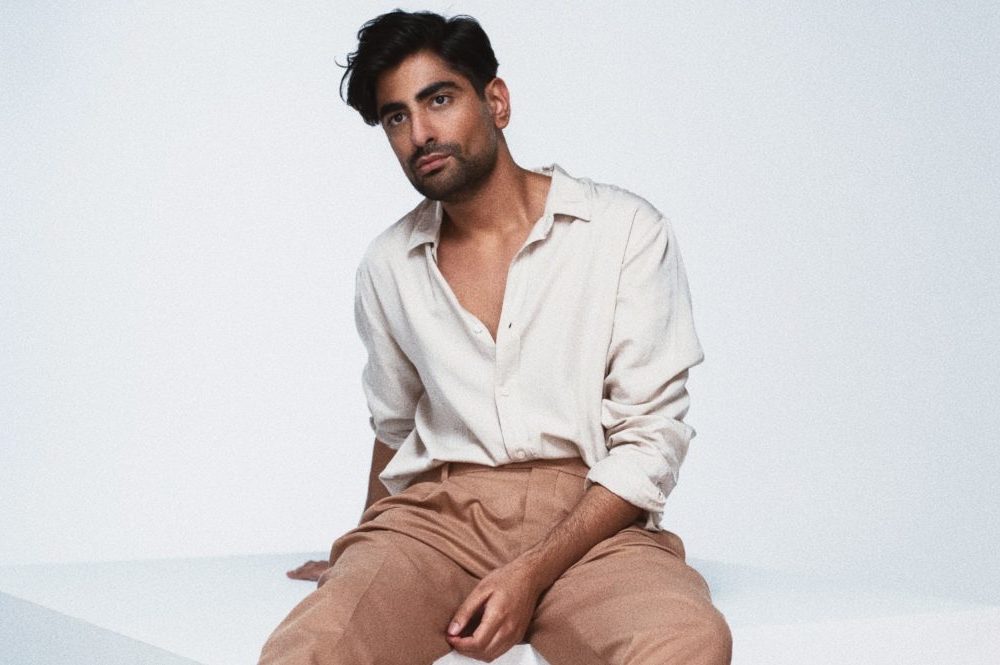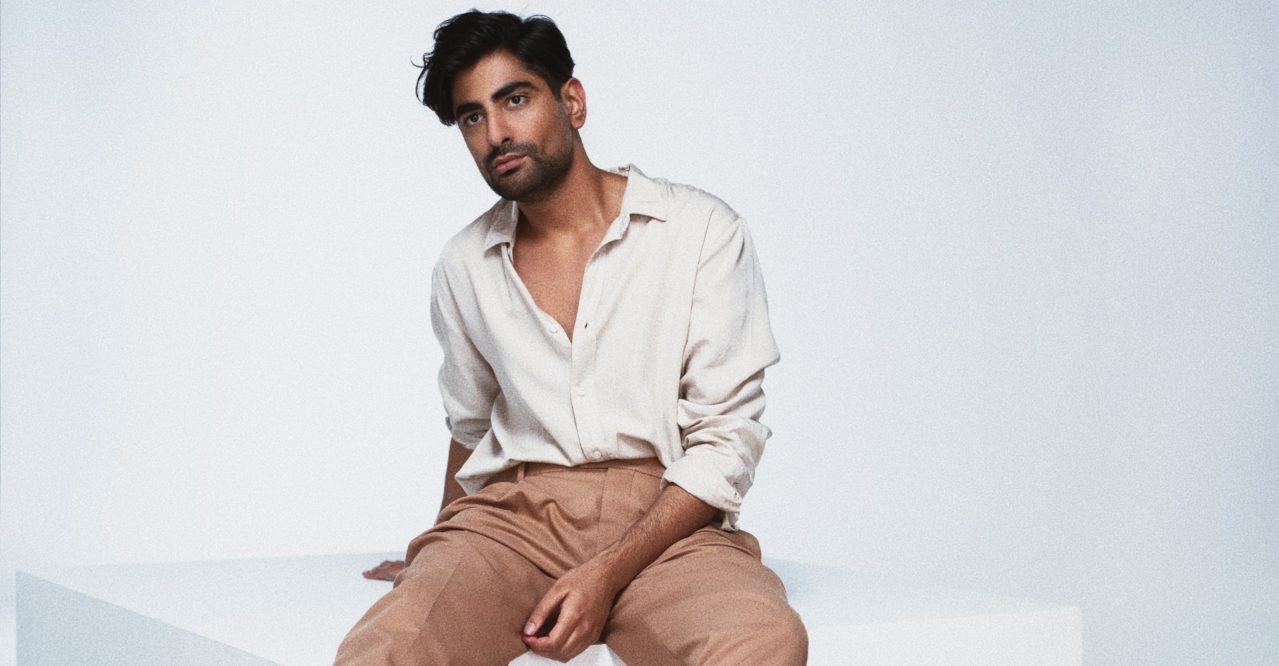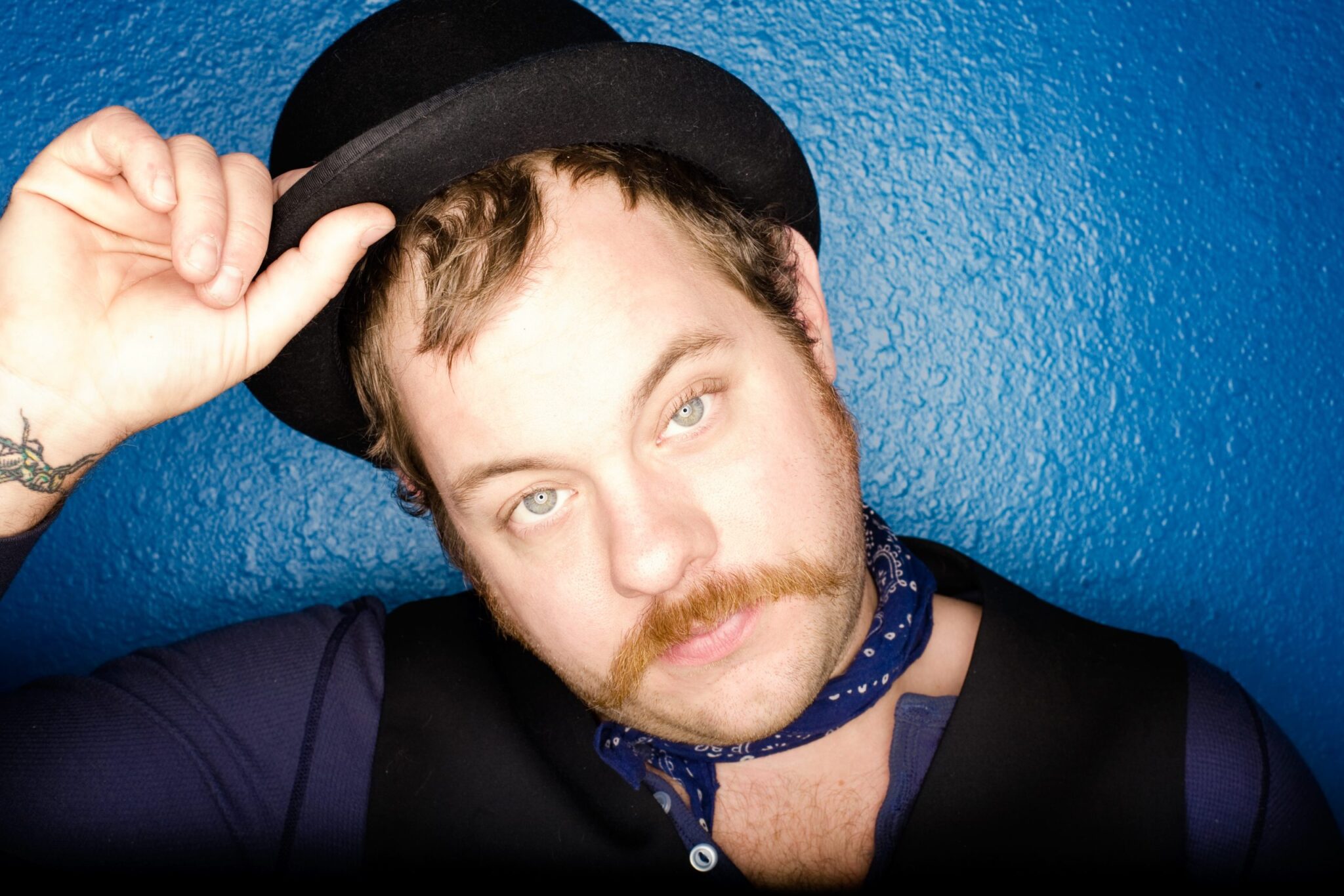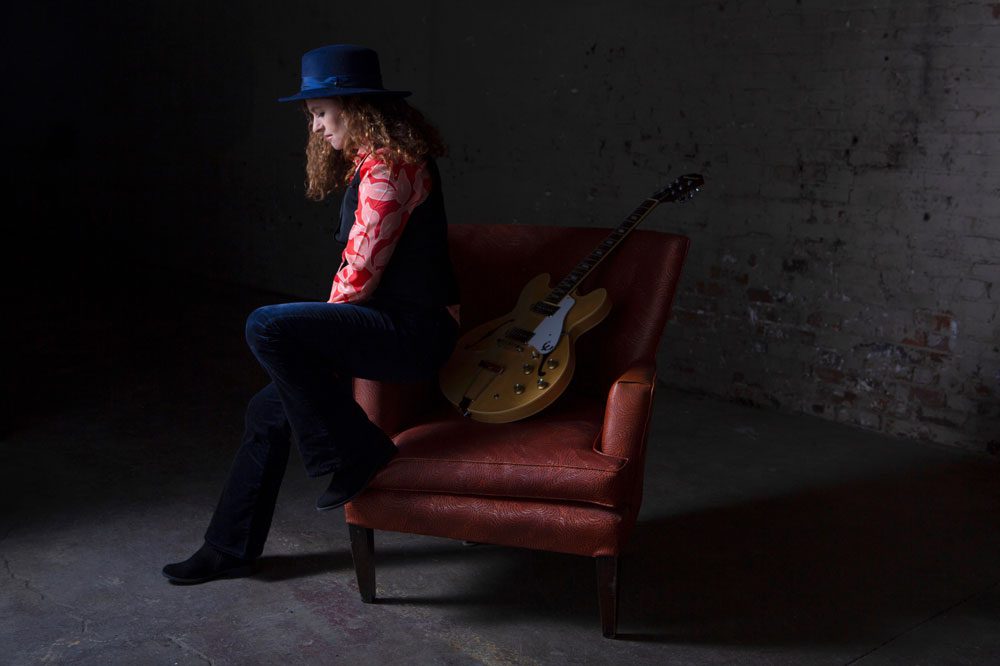

A three-year relationship came to a crashing halt, and Vardaan Arora had some wounds to mend. The India-born singer-songwriter collected the pieces of his broken heart and went on a month-long songwriting bender. When he came out on the other side, he had a handful of dance-pop songs, culminating in his debut EP, Heartbreak on the Dance Floor. Alongside five originals, he also gives Selena Gomez’s “Rare” a smokey facelift that’ll send chills down your spine.
“The triggering of writing this record was a breakup. I was just coming out of a quite long relationship. I had this fresh perspective. After this long time of being codependent, I was suddenly on my own,” he says. “As part of any breakup, the rebound phase is super important to the healing process. After dating someone for three years, the last thing you want is to get to know another person from scratch.”
Pounding and peppy arrangements back dark, heart-shattering lyrics, though the dichotomy wasn’t exactly intentional. “I never really tried too hard to figure out why I chose to do that. I had an epiphany recently where I realized that as a songwriter, I can only draw from my personal experiences,” Arora tells Audiofemme. “I want to be as vulnerable and honest as I possibly can. I feel most inspired to write about my struggles with anxiety, heartbreak, or whenever I feel like life has been sucked out of me. The only way I can come out of it is writing about it. It’s therapeutic and healing. It’s like taking the fear and power away from all these emotions that weigh you down and bringing it back to you.”
Heartbreak on the Dance Floor is quite the roller coaster. Even with tear-stained cheeks, Arora gets the body moving and the blood pumping. He drags the listener into a glitter rave with the title cut, a popping opener to set the mood. He confronts anxiety and his tug-of-war with self-worth on a song called “Imposter Syndrome,” a palpitating downtempo number seeking acceptance. “Don’t know why I’m still around,” he cries.
Another standout moment comes with “I Don’t Wanna Know,” a delicious and naughty rebound banger. “Here’s the thing, I know we just met/But I don’t wanna know anything about ya,” he whispers. “Get the check, I think we’re all set/Cuz I don’t wanna know much else about ya.”
“It’s probably the sexiest song I’ve ever written,” he says of the song, a co-write with producer Ken Gao. The sultry hook-up anthem features MRSHALL, Korea’s first openly gay K-Pop act. Arora simply reached out to him, and the collaboration took off. “He just elevated it and brought this uniqueness to it that I feel I can’t even really put into words,” says Arora. “I Don’t Wanna Know” is more than a sex jam. It’s the meeting of three queer Asian artists all together on one song. There is real power in this triumvirate.
Born and raised in New Delhi, Arora grew up listening to India radio, which predominantly played various Bollywood soundtracks, instilling him with a great sense of melody. He later studied at The British School before heading to Tisch School of the Arts in New York City. By 2016, Arora had released his debut entry, “Feel Good Song,” and continued to release singles over the next three years.
What is most evident with Heartbreak on the Dance Floor is the heightened level of songwriting. His willingness to be so raw, vulnerable, and honest certainly opened his creative floodgates. “My level of comfort has changed. I’m more comfortable writing and confident in taking risks. My fear of failure has gotten lower,” he says. “That’s the biggest change I’ve seen in my songwriting. I’m also working with different people. In my early stuff, it was just me writing by myself. It got a little repetitive.”
Arora has also grown far more confident in his own skin. It hasn’t been easy, and as he’s pushed forward, doubts and misery have plagued his mind. In fact, he has been forthcoming about his exhaustion over an industry built entirely on racism and the mental anguish that has sprouted because of it. “I’m tired of racism. I’m tired of all the media we’ve consumed that’s been centered around white people. I’m tired of how much of it we have unknowingly internalized. I’m tired of trying to figure out if I’m being looked over or treated differently because of my race,” he tweeted earlier this month.
“It’s hard to call it out as racism,” he explains. “You don’t always know you’re being overlooked. So much of your experience with race gets internalized, you start to feel like this is just your life and how it is. Everything is automatically made harder for you, sometimes without you even knowing it. I do not know what life is like for a straight white person in terms of career opportunities or tiny things like how people look at you when you’re walking down the street. No matter how big or small the experience, it’s different. Far too often, it’s invisible. I can’t call something out as racism, even though it might be. Someone not giving me the opportunity I think I deserve may be racially motivated.”
Representation also plays a key factor here. “It makes it harder for me to feel like I am deserving of success or that I do have something to bring to the table. I had never seen anyone like myself valued,” he says. “Growing up, all the pop stars I use to idolize were all white and straight. When I do feel like I’m achieving success, I discount it or feel like it was a stroke of luck. I’m always apologizing for it.”
That’s why a song like “Imposter Syndrome” is so important. It gives a name to the struggles with anxiety, depression, and mental health Arora and countless other LGBTQ+ and BIPOC people have faced. “So many people talk about how you need to believe in yourself before other people can believe in you. But sometimes, it gets really difficult for you to believe in yourself, especially if you suffer from anxiety,” he says. “The world has been telling you they’re not ready for you, so you have to fight twice as hard. It feels like you’re living in this fantasy world.”
Arora is also an actor, and while he has to remain largely tight-lipped about the project, his first-ever role with be in forthcoming slasher flick Wrong Turn: The Foundation, the seventh installment of the film series about cannibalistic West Virginians. “I love horror movies and always have. Wrong Turn is an iconic franchise in its own right, so to be a part of the reboot was super exciting,” he says. “It was a great team of people in terms of their vision. More than that, it was a great experience. It definitely brought me out of my comfort zone. I think people will be pleasantly surprised by it.”
While recognizing Hollywood’s diversity problem, Arora is bolstered by the commercial and critical success of films like Get Out, Parasite, Crazy Rich Asians, and Black Panther. “The narrative that’s been used against these films by Hollywood for the longest time was ‘Oh, it’s just not going to do well commercially, and people aren’t going to be able to relate.’ These films disproved that narrative.” Arora points out. From superhero blockbusters to romantic comedies to Academy Award-winning psychological thrillers, Arora is heartened to see a variety of topics connecting with all types of audiences. “Looking at the entertainment industry, I do think things are changing with the kinds of stories that are being told,” he says. “Far too often, people of color have this pressure to tell these heavy stories about their struggles or identities.”
Even so, it will take deep, wide-sweeping changes in writer’s rooms, in producer’s chairs, and in high-level positions at record labels for the tide to truly turn. “You can’t expect to tell queer stories or stories for people of color if white people are writing them. You need diverse voices behind the scenes,” Arora says. “That’s a change I hope to see. It also goes for music. You need queer people and people of color working at higher positions at record labels. Executives are still predominantly white. They control everything.”
He adds, “If people in power remain white and straight, you fall into the danger of tokenizing these stories that deserve to be told from the right perspectives without being white-washed.”
You can count Vardaan Arora as a powerful voice the music scene needs right now. Heartbreak on the Dance Floor is likely to catapult him to the next level, allowing for catharsis that goes beyond getting over an ex and into the realm of finally feeling validated.
Follow Vardaan Arora on Twitter and Instagram for ongoing updates.




